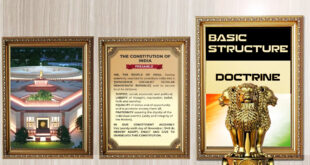The “redevelopment” projects of Delhi which have been in the news are caught up in legal tangles. In these, it is the ones related to their environmental approvals that stand out. This article outlines three ways in which these projects have used the Environmental Impact Assessment (EIA) process to subvert the right of citizens to a better environment. A case in point is the approval process for the “World Trade Centre” in Nauroji Nagar in south Delhi. EIA reports are a critical component of India’s environmental decision-making process in that they are supposed to be a detailed study of the potential impacts of proposed projects. Based on these reports, the Environment Ministry or other relevant regulatory bodies may or may not grant approval to a project. The EIA reports are also important to define measures that the project could take in order to contain or offset project impacts. To ensure that they are an accurate account of scientific facts and observations, the law mandates the engagement of an accredited independent EIA consultant to undertake the study. A case of no ethics The EIA reports of the redevelopment projects are an exercise in the worst possible research practices and ethics. The consultant for the Nauroji Nagar project has used material from copyrighted papers, webpages and other EIA reports. It even mentions that the water quality study was undertaken in 2015, one year before the project was commissioned to NBCC. It cites eight water quality monitoring locations for the study which are situated in Tamil Nadu. This content can be traced back to the EIA report of Tamil Nadu Minerals Ltd. which was prepared by the same consultant. Another example is the text under “Hydrogeology of PIA District” on page 42 of the EIA report. This is a carbon copy of material from a copyrighted book (2015) titled “Management of Water, Energy and Bio-resources in the Era of Climate Change: Emerging Issues and Challenges”. Such research practices in EIAs continue unabated because of the Environment Ministry’s failure to come down heavily on this. In the end, it is citizens who have to bear the brunt.
Check Also
Joint Parliamentary Committees (JPCs): Scrutinizing the Executive
Introduction In a parliamentary democracy, ensuring accountability of the executive is paramount. Joint Parliamentary Committees …
 Chinmaya IAS Academy – Current Affairs Chinmaya IAS Academy – Current Affairs
Chinmaya IAS Academy – Current Affairs Chinmaya IAS Academy – Current Affairs



